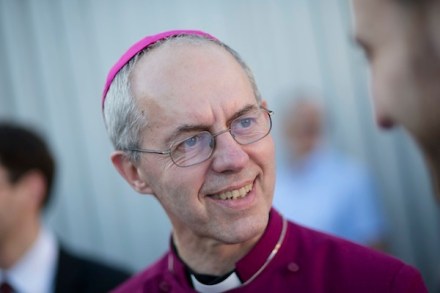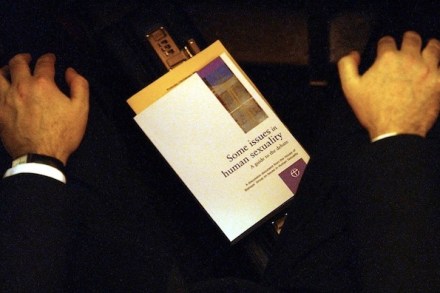Doing God works well for Cameron
David Cameron’s decision to hug-a-Christian seems to have worked pretty well, judging by the political response he’s provoked. For starters, his comments about Britain being ‘evangelical’ about its status as a Christian country managed to enrage the sort of people who also might annoy the churchgoing conservatives he needs to win back after the row over gay marriage. Today, he – and the secularists – got a response from the Archbishop of Canterbury who wrote on his blog: ‘It’s all quite baffling and at the same time quite encouraging. Christian faith is much more vulnerable to comfortable indifference than to hatred and opposition. It’s also a variation on the normal


















